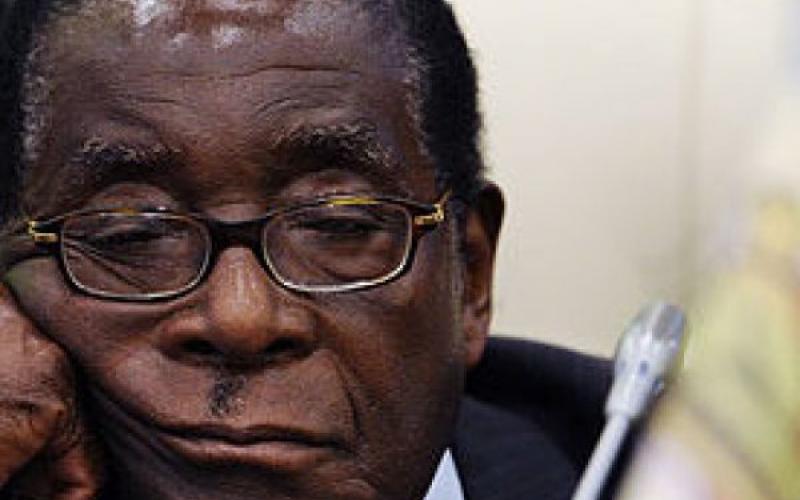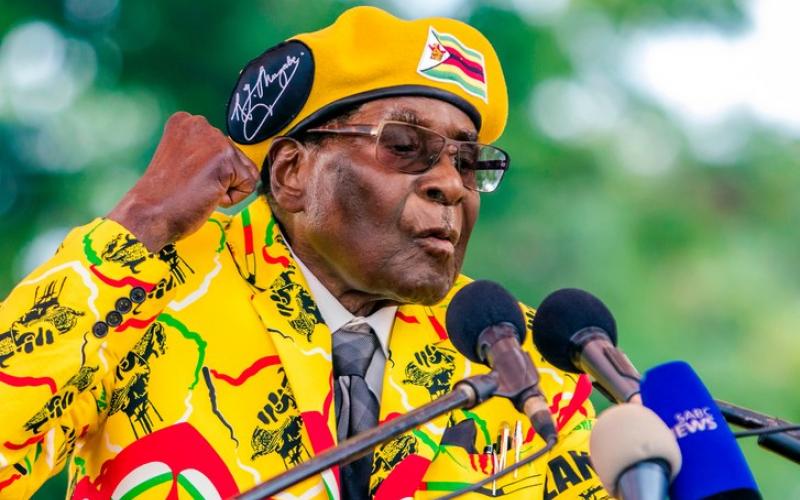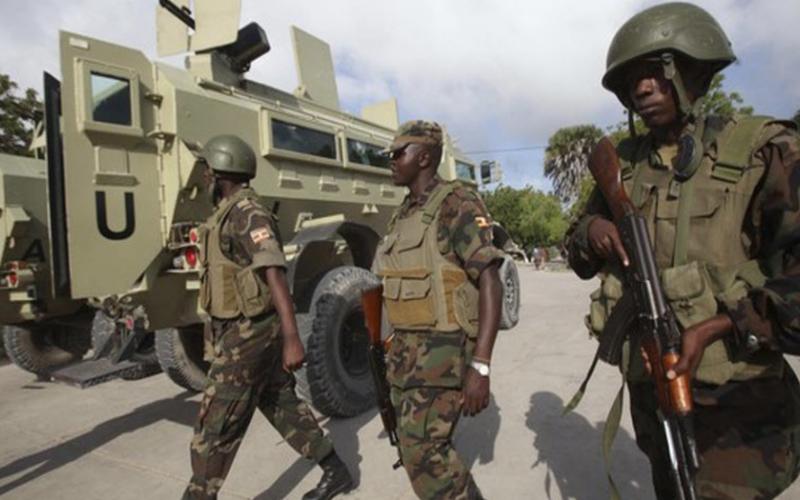CONTENTS: 1. Features 2. Announcements
Features

He is an emblematic, historical figure. He is a giant, whose boot steps inaugurated a revolutionary era in the early years - boots that, sadly, became too heavy for him, and too painful for the ordinary people for whose liberation he had fought.

ZANU-PF will use the current massive popular goodwill to rejuvenate its fortunes. The fragmented opposition has been further weakened. As a carefully choreographed scheme, the military intervention could prove a masterstroke by Emmerson Mnangagwa and his supporters. But all this will be at a high cost for future democratic alternatives in Zimbabwe.

Zimbabweans have struggled for years to replace Mugabe with a democratically elected leader. These efforts were dashed by the military. But now that the citizens have given the palace coup far more legitimacy than it deserves, it is even more vital for progressives committed to social justice to redouble grassroots organising and generate clear demands for a democratic post-Mugabe era.

President Mugabe blundered in not arranging an orderly transition to a successor while he was in a stronger political position. That failure left the door open for schemers like Emerson Mnangagwa and General Chiwenga. The coup was organized over many months to establish a transitional government that would include the opposition.

The ordinary people of Zimbabwe, who have experienced decades of repression and hardship, are rejoicing and are optimistic following the dramatic removal of Robert Mugabe from power. But very soon there will be a renewed struggle for the future of Zimbabwe. And the outlook remains very uncertain.
Horace G. Campbell

Horace G. Campbell is Professor of Political Science and African American Studies at Syracuse University, New York, and is currently Kwame Nkrumah Chair of African Studies at the University of Ghana. His books include, 'Global NATO and the Catastrophic Failure in Libya,' and 'Reclaiming Zimbabwe: The Exhaustion of the Patriarchal Model of Liberation.' In this interview with The Real News Network, Prof Campbell offers critical insights into the political situation in Zimbabwe.
Moses Tofa

The departure of Mugabe represents neither the end of an era nor the birth of a new one. The ruling party and military will emerge stronger, taking the credit for Mugabe’s exit. The opposition’s change mantra will fade away. ZANU-PF will bring about cosmetic changes to endear itself to the people and the world. But the elite, predatory politics of Zimbabwe will largely remain. The struggle continues.

Like Uganda’s Amin – but unlike South Africa’s Mandela – Robert Mugabe fully understood that national liberation meant little if it was not underpinned by popular economic emancipation. That is why Amin and Mugabe became enemies of the west, but Mandela was embraced as an icon. The people celebrating Mugabe’s fall do not understand imperialism. Mugabe’s true legacy will be appreciated in the coming days.

In the wake of the evolving military coup d’état in Zimbabwe this past week, there is already a concerted effort by some in the media in Britain to begin to construct a totally distorted narrative of the relationship between Britain and Robert Mugabe since 1980. The following essay, “Britain, Mugabe, Zimbabwe, Africa”, written in July 2008 and published as chapter 15 in my Readings from Reading: Essays on African Politics, Genocide, Literature (2011: 95-100), is reissued here, unedited, in response to these multiform revisionist efforts on the history of this key region of the African World:

Despite its apparently new interest in preserving democracy, for 37 years the military was an indispensable part of a fossilized oligarchy which betrayed the “revolution” and bankrupted Zimbabwe. Sadly, any post-Mugabe civilian government could only exist if it makes a Faustian bargain with the military.

What happens in the period after Mugabe? Deep down the key issue is whether ZANU-PF will go down with him or it will try to re-align itself in the post-Mugabe political dispensation. There are many people who are suspicious of the role of the army and war veterans in Zimbabwean politics. Certainly, Robert Mugabe did not ruin Zimbabwe alone.

As Frantz Fanon had prophesied, President Mugabe was impelled by his associates to become chairman of the business entity known as Zimbabwe. There were super-shareholders in that enterprise. In-fighting between the various groups with bank notes hidden in their revolutionary berets led to disillusionment and even rebellion.

Robert Mugabe belongs to the generation of Africans who fought for Africa’s self-determination only to finally succumb to the selfish pursuit of power that has left a country with tremendous opportunity on its knees.But he is not the only big man who has betrayed the aspirations of African peoples for authentic peace, prosperity, unity and healing.

As the African Union troops prepare to leave Somalia, the Al Shabaab militants will likely rebuild their capacities and intensify attacks. Already recent mass bombings in Mogadishu are a worrying sign. The Somali national security services, despite receiving some international support, remain weak. The extremist organization is still a serious threat in Somalia and the region.
Ann Garisson

Burundi formally withdrew from the International Criminal Court. But the ICC has announced an investigation into alleged crimes in the country. Burundi has stated that it will neither cooperate nor allow in ICC investigators. What the ICC is doing is an ugly and dangerous attempt to destabilize and destroy the government of Burundi.
African Court

1. The African Court on Human and Peoples’ Rights (the Court), under the aegis of the African Union, in collaboration with the Government of the United Republic of Tanzania, the German Development Cooperation (GiZ), European Union, and World Bank organized the Third African Judicial Dialogue on the theme “Improving Judicial Efficiency in Africa”, from 9-11 November, 2017, in Arusha, Tanzania.
Maurice N. Amutabi

Frequent closure of universities in Kenya reflects poor management of the institutions. The culture of democracy is non-existent. Careerist managers treat students and staff shabbily. There are no mechanisms for addressing grievances, except through threats and violence. This must change.

Haiti, the first black republic, is owed billions of dollars by France that could turn around the lives of its people. After independence in 1804, following the first successful slave revolt in history, France demanded compensation for loss of slaves and its plantations. That ransom has crippled Haiti ever since.
Announcements
 The Young African Leaders Forum (YALF) invites interested Africans to submit research articles for publication in the second edition of its Young African Leaders Journal of Development (YALJOD). The journal is aimed at fostering the collective progress and development of the African people, and it provides the blueprint for the development mission of the leading pan-African movement, Young African Leaders Forum, as well as many other organisations.
The Young African Leaders Forum (YALF) invites interested Africans to submit research articles for publication in the second edition of its Young African Leaders Journal of Development (YALJOD). The journal is aimed at fostering the collective progress and development of the African people, and it provides the blueprint for the development mission of the leading pan-African movement, Young African Leaders Forum, as well as many other organisations.
Pambazuka Android App is now on Google Play Store
 As a way to reach more people and to make your experience with Pambazuka News better, we have developed an android app as another tool to create a better reading experience with mobile devices. The app will have periodic updates to cater for changing readers' requirements and experiences.to cater for changing readers' requirements and experiences.
As a way to reach more people and to make your experience with Pambazuka News better, we have developed an android app as another tool to create a better reading experience with mobile devices. The app will have periodic updates to cater for changing readers' requirements and experiences.to cater for changing readers' requirements and experiences.App download Link
DONATE AND SUPPORT PAMBAZUKA!
Thank you for your support. Click here to donate.
Henry Makori and Tidiane Kasse - Editors, Pambazuka News
Yves Niyiragira - Executive Director, Fahamu
Websites: Fahamu.org, Pambazuka.org
- Log in to post comments
- 3667 reads
Author
Editor

































